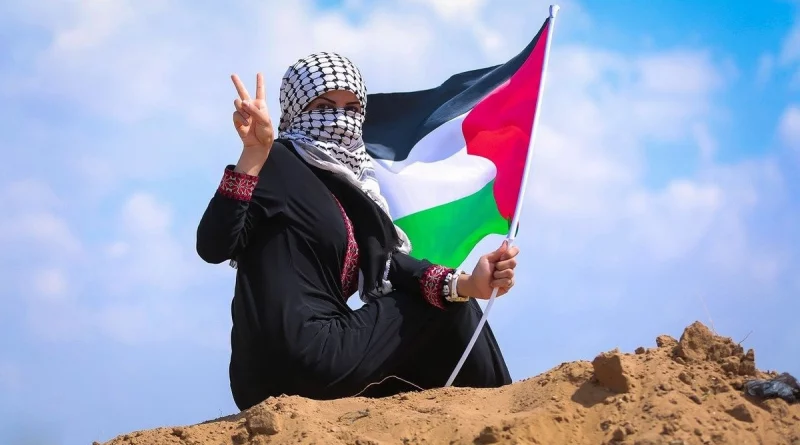Hoy, en otro aniversario de la Nakba de 1948, recordamos el impacto duradero de este trágico evento y su inextricable relación con la actual situación en Palestina. La Nakba, término árabe que significa “catástrofe”, refiere al éxodo forzado de aproximadamente 700,000 palestinos durante la guerra árabe-israelí de 1948. Este éxodo marcó el inicio de un conflicto prolongado y cruel que ha dejado a una comunidad de refugiados de aproximadamente seis millones de personas, muchas de las cuales viven en condiciones deplorables en Líbano, Siria, Jordania y la Cisjordania ocupada.
Desde entonces, los palestinos que permanecieron en el territorio que se convirtió en Israel han enfrentado décadas de discriminación y restricciones, sometidos a la ley marcial hasta 1966. Hoy, los palestinos en los territorios ocupados desde 1967 viven bajo un régimen opresivo de ocupación militar que restringe severamente sus derechos y libertades, afectando todos los aspectos de su vida diaria. La omnipresencia de puestos de control, el muro de separación y políticas restrictivas sigue limitando la movilidad y el acceso a recursos esenciales, exacerbando las tensiones y violaciones sistemáticas de derechos humanos.
Desde 1948, se han realizado múltiples intentos de alcanzar la paz, incluyendo los Acuerdos de Oslo en la década de 1990. Sin embargo, el proceso de paz ha estado estancado durante años, con repetidos fracasos en las negociaciones. En Gaza, los refugiados y sus descendientes representan tres cuartas partes de la población. La negativa de Israel a permitir el regreso de estos refugiados sigue siendo un obstáculo insalvable en las conversaciones de Paz, que colapsaron hace más de 15 años.
Hoy, Gaza enfrenta una crisis aún más devastadora, con una ofensiva israelí que ha causado la muerte de más de 35,000 palestinos (70% de ellos entre niños, mujeres y adultos mayores), más de 78,000 heridos y ha desplazado a 1,7 millones de personas, muchas de ellas múltiples veces; mismas personas que están expuestas a enfermedades, deshidratación, desnutrición aguda entre otros padecimientos por la falta de ayuda humanitaria, cuyo ingreso a la Franja de Gaza se ha visto frenada por Colonos ilegales Israelís y el Gobierno de Israel.
La devastación en Gaza es inconmensurable, con barrios enteros destruidos y daños valorados en 18,500 millones de dólares. La ONU estima que tomará hasta 2040 para reconstruir las viviendas destruidas. Los palestinos temen que la magnitud de la actual destrucción les impida regresar a sus hogares, perpetuando así su situación de desplazamiento y sufrimiento interminable.
Este aniversario de la Nakba nos obliga a reflexionar sobre cómo los eventos de 1948 siguen resonando hoy, afectando la vida de millones de palestinos, ante la indiferencia y pasividad de los organismos internacionales, y manteniendo viva la compleja y dolorosa cuestión del conflicto israelí-palestino. Este conflicto no es más que una herramienta de los intereses imperialistas de Estados Unidos y sus aliados.
A pesar de los continuos crímenes de ocupación contra el pueblo palestino, la resistencia y convicción del mismo los lleva a persistir y luchar para lograr el fin de la ocupación. En este día de conmemoración, es crucial recordar la importancia de los derechos humanos y la búsqueda de una solución justa y duradera; una solución que otorgue al Pueblo y Estado de Palestina su plena soberanía y autodeterminación, en las fronteras de 1967 con Jerusalén Este como su capital.
Hoy más que nunca, es vital que la comunidad internacional despierte de su letargo y actúe decididamente en apoyo de la justicia y la paz para Palestina.
A continuación, versión inglés:
76 YEARS OF THE NAKBA: THE REVOLUTION OF MEMORY AND THE PALESTINIAN RESISTANCE
Today, on another anniversary of the 1948 Nakba, we remember the lasting impact of this tragic event and its inextricable relationship with the current situation in Palestine. The Nakba, an Arabic term meaning “catastrophe,” refers to the forced exodus of approximately 700,000 Palestinians during the 1948 Arab-Israeli war. This exodus marked the beginning of a prolonged and cruel conflict that has left a refugee community of approximately six million people, many of whom live in deplorable conditions in Lebanon, Syria, Jordan and the occupied West Bank.
Since then, Palestinians who remained in the territory that became Israel have faced decades of discrimination and restrictions, subjected to martial law until 1966. Today, Palestinians in the territories occupied since 1967 live under an oppressive regime of military occupation that severely restricts their rights and freedoms, affecting all aspects of their daily life. The omnipresence of checkpoints, the separation wall and restrictive policies continue to limit mobility and access to essential resources, exacerbating tensions and systematic human rights violations.
Since 1948, there have been multiple attempts to achieve peace, including the Oslo Accords in the 1990s. However, the peace process has been stalled for years, with repeated failures in negotiations. In Gaza, refugees and their descendants make up three-quarters of the population. Israel’s refusal to allow the return of these refugees remains an insurmountable obstacle in the peace talks, which collapsed more than 15 years ago.
Today, Gaza is facing an even more devastating crisis, with an Israeli offensive that has caused the death of more than 35,000 Palestinians (70% of them children, women and the elderly), injured more than 78,000 and displaced 1.7 million people, many of them multiple times; the same people who are exposed to diseases, dehydration and acute malnutrition, among other ailments, due to the lack of humanitarian aid, whose entry to the Gaza Strip has been blocked by illegal Israeli settlers and the Israeli Government.
The devastation in Gaza is immeasurable, with entire neighborhoods destroyed and $18.5 billion worth of damage. The UN estimates that it will take until 2040 to rebuild the destroyed homes. The Palestinians fear that the scale of the current destruction will prevent them from returning to their homes, thus perpetuating their situation of displacement and endless suffering.
This anniversary of the Nakba forces us to reflect on how the events of 1948 continue to resonate today, affecting the lives of millions of Palestinians, in the face of the indifference and passivity of international organizations, and keeping alive the complex and painful issue of the Israeli-Palestinian conflict. This conflict is nothing more than a tool of the imperialist interests of the United States and its allies.
Despite the ongoing crimes of occupation against the Palestinian people, their resistance and conviction leads them to persist and fight to achieve the end of the occupation. On this day of commemoration, it is crucial to remember the importance of human rights and the search for a just and lasting solution; a solution that grants the People and State of Palestine their full sovereignty and self-determination, on the 1967 borders with East Jerusalem as its capital.
Today more than ever, it is vital that the international community wake up from its lethargy and act decisively in support of justice and peace for Palestine.
Esta entrada fue modificada por última vez el 17 de mayo de 2024 a las 10:50 AM


